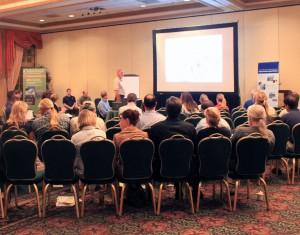The Gulf of Mexico will be restored following impacts from the Deepwater BP oil spill, and the public will play an important role in that restoration process, officials from agencies responsible for restoring the impacted natural resources said at nine public meetings held throughout the Gulf in October and November.
More than 500 people attended the meetings to learn about the Natural Resource Damage Assessment (NRDA), the restoration-focused process of assessing the damage and restoring the Gulf. Public meetings provided an opportunity for people to gain knowledge of the restoration process by speaking one-on-one with experts or asking questions in a town hall setting.
Members of the public learned about NRDA at meetings in Texas, Louisiana, Alabama, Mississippi, and Florida. At the meetings, representatives from the involved federal and state agencies listened to the public's comments and concerns. Questions included data access, public input, and a time frame for completing assessment, restoration planning, and implementation.
Much of the data being collected as part of the NRDA process can be found online once it has been collected and completes a quality control and quality assurance process.
Opportunities for public involvement in NRDA will include attending and speaking out in public meetings plus providing restoration project ideas and feedback on draft restoration plans once released.
There is no timeline for completing assessment and restoration, typical NRDAs can take years to complete. Every spill is different, and the agencies responsible for restoring the impacted resources are working together to conduct a complete and accurate assessment.
These are just the first meetings in the NRDA process. Future meetings to delve into restoration approaches and potential projects will be scheduled and announced on this site. Sign up to receive e-mail updates about those meetings and other NRDA-specific information.


